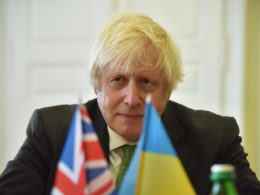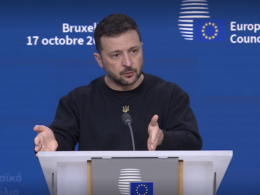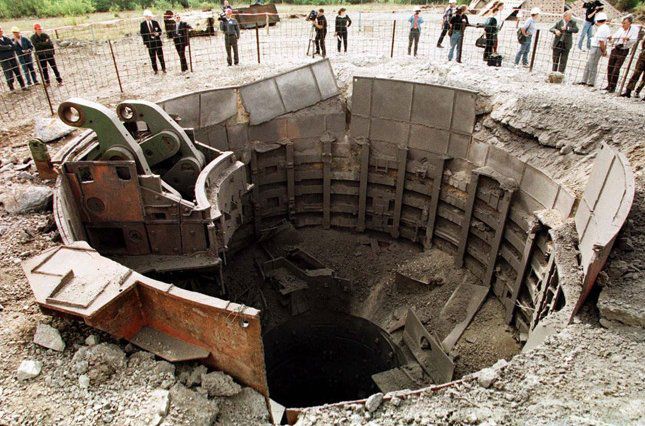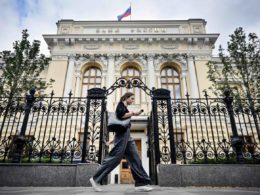Claim:
A controversy emerged following comments by US President's Special Envoy Richard Grenell about the ownership of nuclear weapons that were on Ukrainian territory after the Soviet Union's collapse.
On 25 March, Grenell stated on social network X that these weapons "belonged to Russia" rather than Ukraine.
"Let’s be clear about the Budapest Memorandum: the nukes were Russia’s and were leftovers. Ukraine gave the nukes back to Russia. They weren’t Ukraine’s. This is an uncomfortable fact," Grenell wrote.
His statement prompted swift rebuttals from several experts and former officials.
The debate follows comments by Ukrainian President Volodymyr Zelenskyy in a 4 February interview with Piers Morgan, where he suggested that the West should return nuclear weapons to Ukraine if NATO membership continues to be delayed.
Zelenskyy expressed belief that Russian President Vladimir Putin would not have attacked Ukraine in 2022 if the country had retained its nuclear arsenal. Meanwhile, US Special Envoy for Russia and Ukraine Keith Kellogg stated that Ukraine has virtually no chance of regaining nuclear weapons as an alternative to NATO membership.
Ukraine reality check:
Steven Pifer, who served as US Ambassador to Ukraine from 1998 to 2000 and helped negotiate the Budapest Memorandum, directly contradicted Grenell's claim.
"Nuclear warheads in Ukraine were ex-Soviet, not Russian. Warheads in storage were in sole Ukrainian custody. Intercontinental ballistic missiles (ICBM) and bombers were eliminated in Ukraine except small number sent to Russia for debt relief," Pifer wrote.
He added that Ukraine transferred ICBMs and nuclear warheads to Russia primarily because Moscow had committed to respect Ukraine's sovereignty and territorial integrity under the Budapest Memorandum.
Why did Budapest Memorandum prove ineffective?
Ukraine agreed to give up its nuclear weapons in 1994 in exchange for security assurances from the signatories of the Budapest Memorandum, which included Russia, the United States, and the United Kingdom. Russia violated the memorandum by invading eastern Ukraine and annexing Crimea in 2014 and then launching a full-scale invasion in 2022.
The memorandum used the term "security assurances" in English, while the Ukrainian version used "security guarantees," leading to different interpretations of the obligations.
The document lacked specific mechanisms for enforcement or collective defense, relying instead on consultations among signatories in case of a breach. It was also not ratified by the signatories' parliaments, making it a political agreement rather than a legally binding treaty.
When the Russian aggression began in 2014 and then 2022, the US and other signatories provided aid and sanctions, but they were not obligated to militarily defend Ukraine under the terms of the agreement.
This lack of a strong enforcement mechanism ultimately rendered the Budapest Memorandum ineffective in protecting Ukraine from Russian aggression.
Former US President Bill Clinton expressed remorse regarding his involvement in Ukraine's nuclear disarmament process during the 1990s. He suggested that had Ukraine retained its nuclear capabilities, Russia might have been deterred from launching its full-scale invasion.
More refutations of Grenell's claim
Former UK Independence Party leader Henry David Bolton characterized Grenell's statement as "absolutely untrue," noting that the weapons were "inherited by Ukraine after the collapse of the Soviet Union."
This position was echoed by Natalie Loiseau, former French Minister for European Affairs, who emphasized the Soviet rather than Russian origin of the weapons.
"The nukes were Soviet. Meaning as Ukrainian as Russian. Either Rick Grenell doesn’t know it, and it’s a problem. Or he knows it, and it’s an even bigger problem," Loiseau wrote.
Former Republican congressman Adam Kinzinger offered a more pointed critique, stating that "the weapons Soviet you ignorant ass helmet. So they were as equally Ukraines as Russia's."
Tymofiy Mylovanov, a Ukrainian economist and former Minister of Economy of Ukraine, commented on the Grenell's post on X:
"The nukes were Soviet, and Russia is not a USSR. Ukraine was an equal part of it and at the dissolution it was agreed that Ukraine gets the nukes."
Verdict:
Richard Grenell's claim that nuclear weapons in post-Soviet Ukraine "belonged to Russia" misrepresents the historical reality following the USSR's dissolution.
These weapons were legally part of Ukraine's inheritance as a successor state to the Soviet Union and were under Ukraine's sovereign control, not Russian property on loan.
The Budapest Memorandum negotiations specifically recognized Ukraine's right to determine the fate of these weapons, which is why security guarantees were offered in exchange for their surrender.





